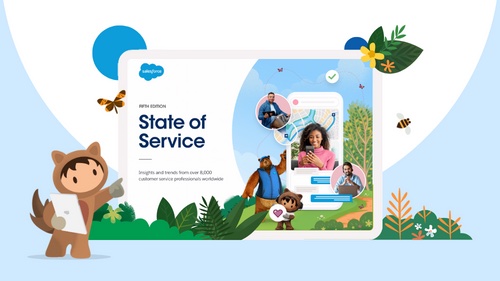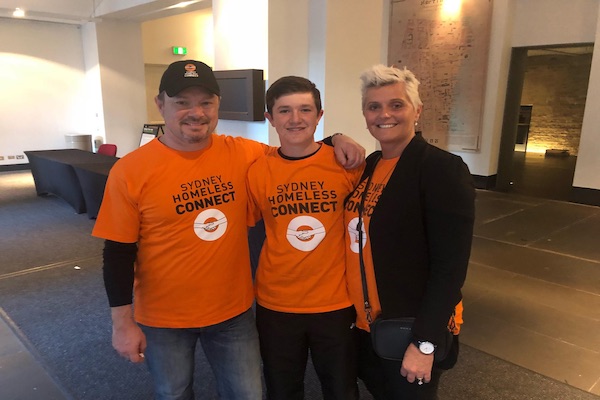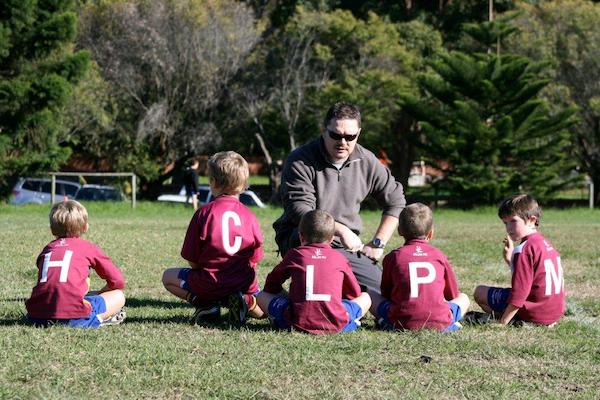
Get your FREE 30-day trial.
Start by selecting a product:
He was employee #4 in our New Zealand office. He’s now Salesforce APAC’s Regional Vice President for Strategic Services. Craig Poynton shares why he’s stayed with the business for 11 years, what’s changed the most and least in that time, and what he looks for when hiring people into the Customer Success Group.
I grew up in the UK and left school at 17 to embark on a career in banking, working my way up from cashier to loan specialist and branch manager. I even tried my hand at being an independent financial adviser and mortgage broker. At the time, I was in my mid-20s and I just assumed my career was going to be in financial services.
But then I got involved with Woolwich Building Society – one of the UK’s big banks (and now a part of Barclays) – leading a project to set up a new paperless system. One of the external consultants I was working with commented that I had a knack for technology and should consider a career path in IT. I took that on board, and decided to study a Diploma in Information Technology.
After finishing the course, I went along to an open day for tech consulting firm Capgemini (I still have the advert I ripped out of the Birmingham Mail back in 1997). They were looking for people with programming and Oracle skills. I had neither but they ended up hiring me as a software tester to work on a large project for a financial services client. It was a great transition job into the tech world.
I stayed with Capgemini for seven years, working my way through a number of roles. Then I went over to New Zealand, did some contracting work and decided I wanted to stay.
Working as an independent contractor for New Zealand-based insurance company Tower Insurance, I was tasked with finding them a new lead management solution. One of the technologies they wanted me to investigate was this thing called Salesforce.
When I saw the Salesforce demo, it was a real eye opener! Working as an IT project manager, I was used to having to rely on developers to interpret my instruction, and the end product was never 100% what I’d imagined. But here in front of me was technology that I could take and make work the way I wanted.
I just loved the product from day one and knew I wanted a job at Salesforce, so I started lobbying them and eventually became employee number four in New Zealand.

So, my first role was as an Engagement Manager, covering New Zealand and pockets of Australia. I’d meet customers, scope out what they needed then morph into delivery mode the following week.
In 2009, I had the opportunity to go to Thailand to lead a huge implementation project for one of our major financial services clients in the region. My financial services background came in handy once again. So my family and I lived in Bangkok for a year.
Once the project was over, I had the option to return to New Zealand. But I decided I wanted to get more involved in the heart of the APAC business, which meant a move to Sydney. In Australia, I moved back into an Engagement Manager role, but with some of our larger customers and involving bigger teams and bigger projects.
Then in 2013, Salesforce launched Advisory Services, so I picked up the reins and built that business in APAC, before taking on my current role in mid-2017.
The Thailand experience taught me a lot about working across cultures and being sensitive to cultural differences. The business techniques I thought I’d honed over the years didn’t work in Thailand’s hierarchical society.
I had to learn how to adapt my style depending on the people I was working with, and this has helped me enormously in my current role, which involves a lot of travel to Asia and India.

The sheer size of the business! When I first started in New Zealand, I was one of four people, we were a very tight-knit team.
The business is also much more complex due to acquisitions as well as the growth of the platform. I used to pride myself on knowing the product inside-out, but I can't claim to know everything anymore. This has been partly due to role change and partly due to the breadth of the platform. I’ve had to accept that I can't be the leader I need to be if I'm constantly focused on learning the product.
Salesforce’s core values haven’t changed. People often ask me why I’ve spent so long at one company. The answer is the genuine care Salesforce shows its employees, and broader ecosystem of customers, partners and the community.
For the past eight years, I’ve sat on the board of a homeless charity, Sydney Homeless Connect. I don't think I would be doing that if I didn't work for Salesforce; if I wasn’t consistently being encouraged to give back. For me, the social enterprise side of the business is such a key part of what Salesforce does.
Salesforce’s commitment to customer success also hasn’t changed. Our growth has always been based on mutual success, with a real focus on getting customers self-sufficient, using the product and being successful. It’s one of the reasons I joined all those years ago – customers love our products and they love us. And that's often a rare thing in technology!
The ability to put the customer first. To be successful here you need to be able to put yourself in the customer’s shoes, think about their business and what they’re trying to achieve, and focus on what's right for the customer.
When it comes to hiring, I used to look for people who had strong CRM experience. Now, I just look for smart, good people. I've realised I can teach someone the technology, but it’s a lot harder to teach someone the necessary soft skills.
.jpg)
I'm a consensus-driven person. Rather than dictating an approach, I like to bring people on the journey, and get the majority to agree and buy-into the team’s direction. This often takes longer but in my mind is worth it.
I also think it’s very important to invest time in getting to know my direct reports and helping them along on their own journey.
It's tough, especially with the amount of travel I do. I'm very lucky to have an amazing wife, who’s been incredibly supportive of my career journey. Without her, I wouldn't have been able to do some of the roles I've done.
Some of the strategies I’ve implemented over the years include getting rid of notifications on my phone. I don't have an always-on attitude.
During the week, I do find work bleeds into the evening. That’s the reality of working in a global business sometimes. However, I’m very regimented about weekends – that’s family time.
If you’re ready to transform your everyday, join the Salesforce team. Sign up for our newsletter to be kept informed about upcoming jobs, plus receive tips to improve your work/life balance at your current job and more.